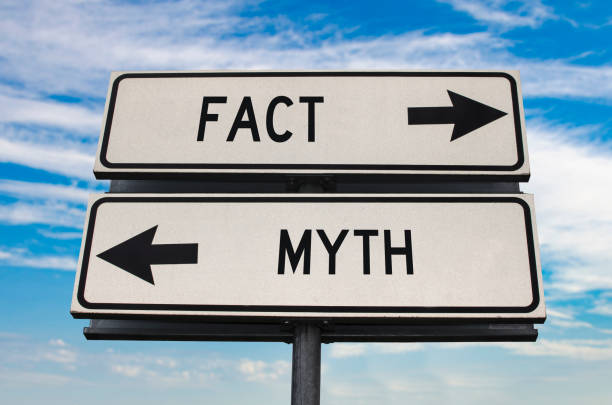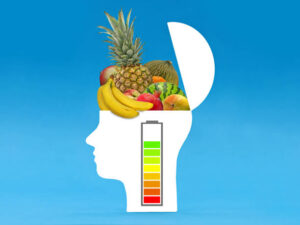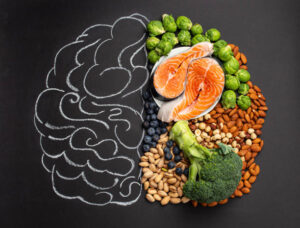Veganism is often surrounded by a cloud of misconceptions that can prevent people from exploring this healthy lifestyle. Let’s debunk some of the most prevalent myths about veganism and provide clarity based on facts and real-life examples.
Myth 1: “Vegans Don’t Get Enough Protein”
One of the most common myths is that vegans struggle to obtain sufficient protein. In reality, many plant-based foods are rich in protein. Legumes, lentils, chickpeas, quinoa, nuts, and seeds pack a protein punch.
For instance, a cup of cooked lentils contains about 18 grams of protein, while a serving of quinoa offers around 8 grams. Moreover, athletes and fitness enthusiasts have thrived on vegan diets, proving that it’s possible to meet and even exceed protein requirements without consuming animal products.
Many professional athletes, like Olympic weightlifter Patrik Baboumian and ultra-endurance runner Scott Jurek, have adopted vegan diets and have excelled in their sports.
Myth 2: “Vegan Diets Are Expensive and Restrictive”
Another myth is that veganism is costly and limits food choices. While some specialty vegan products can be pricey, a vegan diet can be affordable and varied. Staples like rice, beans, lentils, and seasonal vegetables are not only economical but also versatile.
Many traditional cuisines around the world, such as Indian, Middle Eastern, and Mediterranean, offer a plethora of delicious and budget-friendly vegan dishes. For example, a simple meal of rice and beans can provide complete nutrition at a fraction of the cost of a meat-based meal. Furthermore, home-cooked meals using whole foods can be incredibly satisfying and diverse, dispelling the notion of restriction.
Myth 3: “Vegans Lack Essential Nutrients”
Some believe that a vegan diet cannot provide all the essential nutrients needed for health. While it’s true that attention is needed to certain nutrients like Vitamin B12, iron, calcium, and omega-3 fatty acids, these can be obtained through thoughtful dietary choices and supplementation. For instance, fortified plant milk and cereals can provide adequate B12, while leafy greens and nuts can help meet calcium needs.
Additionally, many vegans supplement with algae oil to ensure they receive sufficient omega-3 fatty acids. Health organizations, including the Academy of Nutrition and Dietetics, acknowledge that a well-planned vegan diet can be nutritionally adequate and beneficial at all life stages.
Myth 4: “Vegan Food is Bland and Unappetizing”
Another misconception is that vegan food lacks flavor and variety. This myth could not be further from the truth! Vegan cuisine offers a vibrant palette of flavors and textures. From spicy chickpea curries to zesty quinoa salads and rich cashew cream sauces, the options are endless.
Cookbooks and online platforms are bursting with creative vegan recipes, showcasing how enjoyable and exciting plant-based eating can be. Chefs like Isa Chandra Moskowitz and Miyoko Schinner have revolutionized vegan cooking, proving that plant-based meals can be gourmet and delicious.
Myth 5: “Vegans Can’t Eat Out or Travel”
Many people believe that being vegan severely limits dining out or traveling. While it may require some planning, there are countless vegan-friendly restaurants and options worldwide. Many cities now have thriving vegan scenes, and even non-vegan restaurants serve plant-based dishes.
Moreover, travelers can seek local markets and supermarkets to find fresh fruits, vegetables, and snack options. Resources like the HappyCow app help locate vegan-friendly establishments, making it easier to enjoy dining out and exploring new cuisines without compromising dietary choices.
Myth 6: “Vegans Are Always Hungry”
One prevalent myth about veganism is the belief that individuals following a plant-based diet are perpetually hungry due to the nature of their food choices. However, many plant-based foods are exceptionally high in fiber, which plays a crucial role in promoting feelings of fullness and satiety.
Fiber-rich foods, such as whole grains, legumes, fruits, and vegetables, slow digestion and help regulate blood sugar levels, preventing spikes and crashes that can lead to hunger pangs. For example, beans and lentils are not only packed with protein but also rich in fiber, making them filling options.
A well-balanced vegan diet that incorporates a variety of whole foods—like hearty grains, colorful vegetables, and nutrient-dense fruits—can provide ample energy and essential nutrients to satisfy hunger. Additionally, many vegans find that they can enjoy larger portion sizes of lower-calorie foods, allowing them to feel satisfied while still maintaining a healthy weight.
Myth 7: “Vegans Can’t Build Muscle”
Another common misconception is that vegans cannot build muscle effectively without animal products. In reality, many athletes thrive on vegan diets, proving that muscle growth and athletic performance are achievable through plant-based nutrition.
High-quality plant proteins, such as those found in legumes, tofu, tempeh, seitan, and whole grains, can provide the essential amino acids necessary for muscle repair and growth. While animal proteins are often seen as superior due to their complete amino acid profiles, vegans can combine different plant proteins to achieve similar outcomes. For example, combining rice and beans or peanut butter on whole-grain bread creates a complete protein source.
Myth 8: “Veganism is a Trend”
While veganism has gained substantial popularity in recent years, particularly among younger generations, it is essential to recognize that this lifestyle choice has deep historical roots and cultural significance in many communities worldwide. For centuries, various cultures have embraced plant-based diets based on ethical, spiritual, or health reasons, long before veganism became a trend.
For instance, many Eastern philosophies and religions, such as Buddhism and Jainism, advocate for a vegetarian or vegan lifestyle as a means of practicing compassion and non-violence towards all living beings. These cultural practices reflect a long-standing commitment to plant-based eating that transcends modern dietary trends.
Conclusion
Debunking these common myths about veganism helps us see the benefits of this lifestyle more clearly. A well-planned vegan diet can be satisfying and nutritious, offering plenty of protein and essential nutrients to support an active lifestyle. Additionally, thinking of veganism as just a trend ignores its deep roots in history and culture, as well as its positive impact on health and the environment.
As more people choose plant-based eating for its many advantages, it’s important to recognize that veganism is not just a diet; it’s a way to live healthier and more compassionately. With the right information and resources, anyone can start their vegan journey and enjoy tasty meals while embracing a healthier lifestyle.







